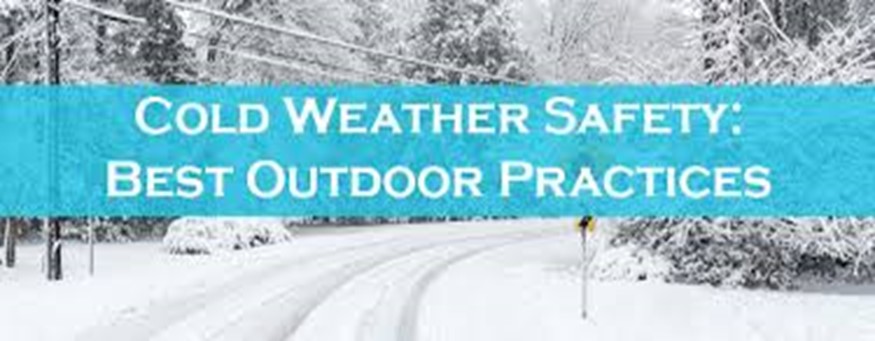
Winter is Here! Part 4 of 5: Take Precautions Outdoors
Winter outdoor activities are fun but they can also expose you to several safety hazards. The CDC offers these safety precautions to follow when outdoors. Some of these are obvious but it’s good to have reminders.
- Sprinkle cat litter or sand on icy patches.
- Wear appropriate outdoor clothing.
- Work slowly when doing outside chores. Cold weather puts an extra strain on the heart. If you have heart disease or high blood pressure, follow your doctor’s advice about working in the cold. Remember, your body is already working hard just to stay warm, so don’t overdo it.
- Excess sweating will cause your body to lose more heat, so remove extra layers of clothing when you feel too warm.
- Stay dry—wet clothing chills the body quickly.
- Do not ignore shivering—it’s an important first sign that your body is losing heat. Constant shivering is a sign that it is time to go inside.
- If you have asthma, breathing in cold, dry air can trigger an asthma attack. Talk to your doctor about how you can prevent asthma attacks when outside in winter weather and remember to follow your Asthma Action Plan.
- Do not leave any areas of your skin exposed to the cold.
- Avoid getting gasoline or alcohol on your skin while de-icing and fueling your car or using a snow blower. Getting these materials on your skin will cause your body to lose a lot more heat.
- Take a buddy and an emergency kit when you are participating in outdoor recreation.
- Carry a cell phone.
- Let your friends and family know where you will be before you go hiking, camping, or skiing.
- Be prepared to take emergency shelter.
- Pack dry clothing, a two-way radio, waterproof matches, and paraffin fire starters with you.
- Do not use alcohol and other mood altering substances, and avoid caffeinated drinks.
- Know the signs of frostbite and hypothermia.
Frostbite includes a white or grayish-yellow skin area, skin that feels unusually firm or waxy, and numbness.
Seek medical care. If you are not able to get medical help right away, take steps to protect yourself and others.
Hypothermia (abnormally low body temperature) is a dangerous condition that can happen when a person is exposed to extremely cold temperatures.
Warning Signs in Adults:
Shivering, exhaustion or feeling very tired, confusion,
fumbling hands, memory loss, slurred speech, drowsiness.
Warning Signs in Babies:
Bright red, cold skin
Very low energy
- If you notice any of these signs, take the person’s temperature. If it is below 95° F, the situation is an emergency—get medical attention immediately. If you are not able to get medical help right away, try to warm the person up.
Coming Next Week: Part 5 – Safe Winter Travel
Water Extraction Experts cares about your safety and well-being. If you ever experience water damage, call us! We use the most advanced technology in water damage mitigation and mold remediation to quickly get your home and your life back to normal again.
Water Extraction Experts – The experts that care!
Emergency 24/7 Water Damage Restoration
Call: 505-808-2080
Serving Albuquerque, Rio Rancho, East Mountain, and Surrounding Areas
